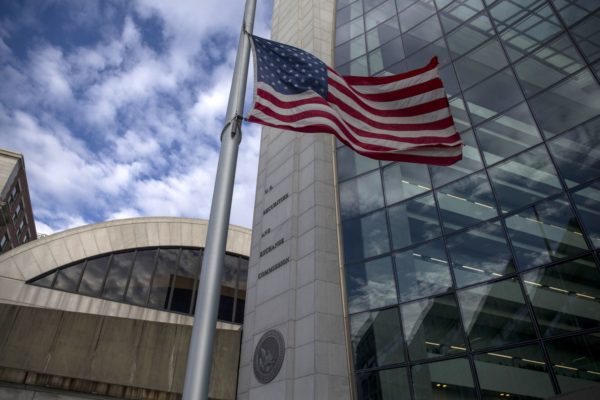By Ben Bain
U.S. regulators are seeking to restrict hedge funds and family offices from using complex derivatives to secretly build huge stakes in public companies — the types of trades that fueled the collapse of Archegos Capital Management.
The Securities and Exchange Commission proposed new rules to address a major regulatory blind spot exposed by fallout from the implosion of Bill Hwang’s firm earlier this year: Equity-based swaps that can be used to quietly build massive bets on companies.

The new rules outlined would require more disclosures and place additional restrictions on firms that trade security-based derivatives. Positions worth at least $300 million, or the equivalent of 5% of the shares trading in an underlying stock, would automatically trigger the new SEC requirements and notional values as low as $150 million could also force the reporting. Investors would have to disclose their identities, positions in the swaps and underlying securities, as well as related loans, according to the SEC. The rules would also ensnare large positions involving bonds and credit default swaps.
The proposal represents the SEC’s first major policy response to Archegos’ breakdown in March, which triggered the sales of billions of dollars in equities and steep losses for major Wall Street firms involved in Hwang’s trades. Under the plan, which was supported by the agency’s three Democrats and opposed by its two Republicans, the large swaps positions reported to the regulator would also be made public.
“When Archegos Capital Management collapsed, we saw once again the risks that might arise,” SEC Chair Gary Gensler said in a statement. “At the core of that story was Archegos’ use of total return swaps based on underlying stocks, as well as significant exposure that the prime brokers had to the family office.”
The SEC has dithered for years on overhauling rules for the derivatives, despite being required by Congress in 2010 to regulate the asset class. The agency’s new plan would prohibit people involved in securities-based swaps trading from trying to manipulate prices or trade on insider information.
Money Market Mutual Funds
Meanwhile, the SEC outlined new rules for money market mutual funds that are meant to prevent the kind of outflows that occurred in March 2020 when the onset of the pandemic roiled markets. That turmoil prompted the Federal Reserve to intervene and rescue money market funds for the second time in 12 years, spurring calls for the SEC to tighten regulations.
To bolster funds’ ability to withstand another wave of redemptions, the SEC proposed:
- Increasing the percentage of total assets that funds must maintain in cash or other assets that can be liquidated quickly — to 25% for overnight liquidity and 50% for weekly liquidity
- Removing funds’ ability to charge fees for redemptions or temporarily restrict them if liquid assets fall below certain thresholds
- Requiring that institutional prime and tax-exempt funds use a swing pricing mechanism that the agency says forces redeeming shareholders to bear costs of pulling out money
- Boosting some reporting requirements
Those changes also received the support of Gensler and the SEC’s other two Democrats — Allison Herren Lee and Caroline Crenshaw. The regulator’s Republicans — Hester Peirce and Elad Roisman — opposed it and called for a less “prescriptive” approach.
The Investment Company Institute quickly came out against parts of the plan, arguing that the swing pricing requirements would make funds more costly and less attractive. “We are very concerned about the proposed complex mandatory swing pricing regime for certain money market funds,” said Jane Heinrichs, ICI’s associate general counsel.
In a separate move, Wall Street’s top regulator released a plan to increase disclosures for companies repurchasing their shares. Stock buybacks have drawn the ire of key progressive lawmakers including Massachusetts Senator Elizabeth Warren and the new limits were supported by agency’s three Democratic commissioners. The two GOP members of the SEC also opposed that proposal.
More stories like this are available on bloomberg.com




